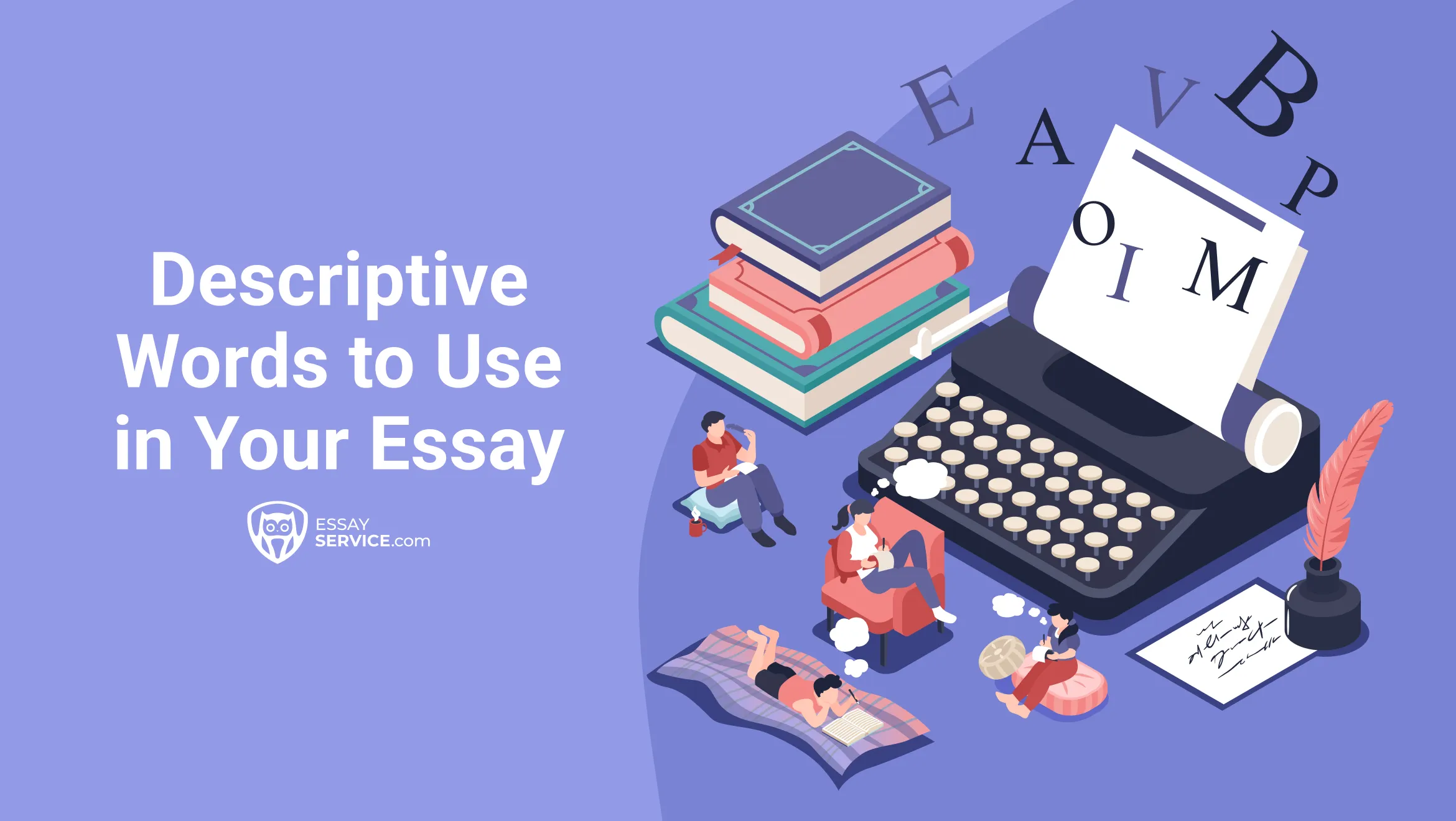You’ve probably heard it a million times: “Tell us why you’re a good fit for this graduate program.” But when it comes to writing a humanities personal statement, they don’t just want a basic list of your accomplishments. They want a story — your story.
Sounds easy until you actually start typing. Do you talk about your love for medieval literature? Do you mention your undergraduate thesis? Or maybe you should focus on that professor whose work you admire? It’s enough to make anyone feel overwhelmed, and the truth is, this struggle is incredibly common.
Here’s what makes it so tricky: unlike personal statements in other fields, a humanity personal statement isn’t just about listing achievements. It’s about showing why your academic story matters.
But it doesn’t have to be this way. This article is packed with personal statement tips for graduate programs in the humanities, designed to help you navigate this nerve-wracking process and make your statement shine.
With expert writers who’ve been through the process and know exactly what admissions committees are looking for, EssayService can help turn your ideas into a polished, compelling personal statement.
Requirements of Humanities Personal Statements
1. Academic Focus Over Professional Experience
When it comes to a personal statement for humanities programs, think less “job resume” and more “academic passion project.”
Admissions committees aren’t looking for a rundown of your work history. They want to see your love for research, critical thinking, and exploring big ideas. Maybe it’s that feminist literature that changed your perspective, or a project that made you rethink historical narratives.
Whatever it is, focus on how your academic experiences have shaped your thinking and prepared you for more serious challenges. This is your chance to let them see why you’re the perfect fit, beyond just checking boxes.
2. Discussing Research Interests
You don’t want to overwhelm with too much detail, but you can’t be vague, either.
Be specific, yet relatable. Think about why you’re drawn to your chosen field. Maybe you’re fascinated by how mythology influences modern literature or you want to explore the role of art in social movements. Don’t just say you like it but show how these interests have shaped your academic path. Mention how your past projects connect to what you want to research in grad school and how that aligns with what the graduate program offers.
This helps the committee see that you’re not just passionate — you’re ready to contribute.
3. Showing Alignment with Faculty
Imagine reading hundreds of personal statements, and every single one sounds like it could’ve been sent to any program anywhere. That’s why tailoring your statement to specific faculty members is so valuable.
Mention professors whose work inspires you or research projects that resonate with your interests. Maybe you’ve read Dr. Smith’s work on postcolonial theory and it sparked your own research ideas.
Highlighting these connections shows that you’ve done your homework and are genuinely excited about working with them. It’s not just about saying, “I’m interested in your graduate program,” it’s showing that you see yourself thriving there, working alongside people whose research lights you up.

Guide to Writing a Strong Personal Statement for Humanities Graduate Programs
Writing a personal statement for humanities programs doesn’t have to be a struggle. By breaking it into smaller, focused steps, you’ll be able to create a statement that captures your passion and academic journey.
Here’s a simple guide to writing an impressive humanity personal statement, step-by-step:
- Start with a Personal Yet Professional Introduction
- Highlight Your Academic Background and Achievements
- Define Your Research Goals and Interests
- Show Your Fit with the Program
- Conclude with a Vision for the Future
1. Start with a Personal Yet Professional Introduction
Think of your introduction as the first impression, so make it count.
Instead of saying something like, “I’ve always been interested in history,” start with a moment that actually made you interested in history. Maybe it was that time you got into a friendly argument with your professor over a historical event, and they recommended a book that completely changed your perspective. Or perhaps you stumbled upon a dusty old manuscript in your college library that made you interested in forgotten voices in literature.
- Tell a quick story: “During my sophomore year, I found a random essay on women poets of the Harlem Renaissance that made me realize just how many voices were missing from mainstream discussions. That paper changed my research focus entirely.”
- Mention a real experience: “I still remember the first time I read The Republic by Plato. It was supposed to be for a class, but I ended up staying up all night reading it, just because I couldn’t put it down. That’s when I knew I wanted to study philosophy more seriously.”
No vague “I love history” or “I’ve been fascinated by literature” lines. Be real and be specific!
2. Highlight Your Academic Background and Achievements
Okay, this is where you show off what you’ve been up to during your undergrad. Don’t just rattle off a list of classes. Instead, mention the projects that really stuck with you. Maybe it was a thesis that made you rethink an entire genre, or a research paper you put your heart into.
- Share a meaningful project or research: “For my senior thesis, I looked at how 19th-century British literature portrayed gender roles. I was in way over my head at first—spent more hours in the library than I’d like to admit. But by the end, I could see patterns in the texts that changed how I viewed the entire period.”
- Point out what you learned: “Working on a group research project on how different cultures view history made me realize that what’s ‘true’ depends on who’s telling the story. I learned how to question sources and explore more to get a fuller picture.”
No need to sound like a textbook. Just talk about what you did, what you learned, and why it matters to you.
3. Define Your Research Goals and Interests
When talking about your research goals, think about what really drives you. What are the questions that keep you up at night because you can’t stop thinking about them? Explain why they matter to you and what you hope to find out. Maybe you want to explore how marginalized voices are represented in 20th-century literature, or you’re curious about the impact of historical narratives on modern social movements. Whatever it is, be specific and show how your academic or educational background already has shaped these questions.
For example, if you’ve spent time studying postcolonial theory in undergrad, explain how it led you to question how history is taught in schools and why you now want to research alternative historical narratives in academic community. Or, if a research project on women’s literature made you realize that many female voices have been lost, mention how that experience fuels your desire to bring more of these voices into the conversation.
4. Show Your Fit with the Program
It’s not enough to say, “I want to go to your graduate program because it’s highly ranked.” That’s not going to impress anyone.
Instead, show that you’ve actually taken the time to understand what makes their program unique and how it lines up with what you want to do. Is there a professor whose work you’ve been following? Mention how their research aligns with your own goals. For example, “I’m especially interested in Professor Green’s research on narrative identity, as it complements my own interest in exploring how personal stories shape cultural understanding.”
Another good approach is to highlight the resources, skills, or opportunities the program offers. Maybe they have a research center or access to archives that you’re excited to use. “The opportunity to work with the archival collections at your research center would be invaluable for my study on forgotten 19th-century texts.”
5. Conclude with a Vision for the Future
Now that you’ve laid out your academic journey and why you’re a great fit, let them know where you see yourself going. What’s the end game? Maybe you want to become a professor, work in education or public policy, or even bring your research into nonprofit work. Whatever it is, paint a clear picture of what you hope to do with this degree.
- Be specific: “I see myself becoming a professor who not only teaches but helps students discover voices in literature they’ve never heard of before. I want to build a curriculum that makes people think beyond the classics and explore lesser-known, diverse authors who have shaped our world.”
- Show your enthusiasm: “I also hope to work outside academia, hosting workshops and community discussions that bring literature to life and make it relevant to everyday people. I want to use my research to highlight untold stories and get people talking about why these narratives matter.”
The goal here is to show them that you have a clear idea of what you want to do with it and why it’s important to you. It’s all about making them excited to be part of your journey!
Formatting and Length Considerations
When it comes to personal statements, following a few basic guidelines can make a huge difference in how your story comes across. You could have the most compelling content, but if it’s a disorganized mess or way too long, your message might get lost.
Here are a few practical tips to keep in mind:
- Adhere to the Word Limit: Aim for 500-1,000 words. It might sound like a lot, but once you start writing, it’s easy to go overboard. Keep it concise and focused. Think of it like telling a story to a friend. You want to keep their attention, not lose them halfway through because you went off on a tangent.
- Maintain a Clear Structure: Break up your statement into sections that flow logically. Use headings like “Academic Background” or “Research Goals” if needed, it’ll help you stay on track as you write. Remember, a clear structure makes your statement easy to follow and highlights the key points you want to get across.
- Proofread Extensively: Typos and awkward sentences can be distracting and make you look less polished. Once you’re done, take a break and come back to it with fresh eyes. Read it out loud. You’ll catch mistakes you might’ve missed. Also, have a trusted friend or mentor give it a read. Sometimes, others can see things we can’t.
Sample Structure for a Humanities Personal Statement
If you’re wondering about advice on how to structure your personal statement, here’s a solid humanities personal statement example layout that will help you tell your story in a way that makes sense and keeps things interesting.
- Introduction: A Compelling Personal Anecdote
Kick things off with a story that shows why you’re passionate about your field. Maybe it was the time you found your grandfather’s old war letters, and reading them made you realize how personal narratives shape our understanding of history. Talk about how that moment stuck with you and led to your interest in studying the role of personal stories in shaping historical events. - Academic Background: Relevant Coursework, Research, and Thesis
Share some highlights of your academic journey. For example, “In my junior year, I took a course on postcolonial literature that completely changed my perspective on how narratives are constructed. It inspired me to write my senior thesis on how colonial histories are portrayed in modern fiction. This experience taught me to question dominant narratives and look for the stories that are often left out.” - Research Focus: Clear Research Questions and Objectives
Here’s where you outline what you actually want to study. Maybe your research question is: How do personal narratives from marginalized communities reshape our understanding of historical events? Explain why you want to explore this topic and what impact you hope your research will have. - Fit with the Program: Why This Program and Faculty Are Ideal
Show that you’re not just applying to any graduate program, but to this program for a reason. Maybe you’ve followed Professor Davis’s work on oral histories, and their research aligns perfectly with your own interests. Say something like, “I’ve been inspired by Professor Davis’s research on oral histories in African American communities. I’m excited about the opportunity to work with her, as I believe her expertise will be invaluable in guiding my research on community-based storytelling.” - Conclusion: Future Academic and Professional Goals
Finish by explaining where you see yourself after graduate school. “My ultimate goal is to become a professor and mentor, helping students discover the power of untold stories, just like I did. I also want to work on community outreach projects that bring lesser-known histories to the public through workshops and storytelling events.”
Common Mistakes to Avoid
It’s easy to get lost in what to include in your personal statement, but sometimes what you leave out is just as important. Avoid these common mistakes to make sure your humanity personal statement stands out for all the right reasons:
1. Being Too General or Vague
What It Looks Like: “I love literature because it helps us understand the human condition.” A statement like this could apply to any applicant and doesn’t say anything unique about you.
How to Fix It: Instead, focus on a specific class or project that shaped your understanding. For example, “Reading Beloved in my sophomore year made me question how trauma is passed down through generations and inspired me to research the role of memory in African American literature.”
2. Repeating Your Resume
What It Looks Like: Just listing your experiences: “I took classes on Shakespeare, wrote an essay on Jane Austen, and joined the literature club.” This approach doesn’t add much.
How to Fix It: Use the statement to go deeper. “Crafting that essay on Jane Austen taught me how social norms influence literary expression, and it’s why I want to research the intersection of gender and literature.” Add meaning to what’s already on your resume.
3. Ignoring the Department’s Focus
What It Looks Like: Writing one generic statement and sending it to multiple graduate programs: “I’m interested in studying literature at your university.” This makes it sound like you haven’t researched the program.
How to Fix It: Tailor each statement. Mention specific professors, courses, or resources that attract you to this particular graduate program. Show that you know why this is the right place for your research.
Final Tips for Success
Writing a strong humanities personal statement doesn’t have to be overwhelming. With some planning and thoughtful effort, you can create a statement that reflects who you are and what you want to achieve:
- Get Feedback Early: It’s easy to miss small errors or unclear sections when you’ve been staring at the same text for hours. Share drafts with mentors, professors, or friends who know your academic journey. They can offer fresh perspectives and point out areas that might need more explanation or examples.
- Start Early: Waiting until the last minute will only add unnecessary stress. Start jotting down ideas and organizing your thoughts well in advance. This will give you time to revise and refine multiple drafts without feeling rushed. The best statements usually come after a few rounds of writing and revising, not on the first try.
- Be Specific: This can’t be emphasized enough. Mention particular classes, books, or experiences that led you to pursuing your current research interests. Did a specific conversation with a professor change how you viewed your field? Include it. The more concrete details you provide, the more your statement will stand out.
Bringing It All Together
Tell your story in a way that shows why you belong in this graduate program. A great statement shows off your passion, highlights your academic journey, and makes it clear how you’ll contribute to the program. It’s your chance to make the admissions committee think, “Yep, this is exactly who we want.”
But if you’ve gone through all this and still feel like you need some help, that’s totally okay. EssayService is here for you. We know what it’s like to try to fit all your thoughts into one short statement without it sounding like a boring list. Our team of expert writers can take your ideas and turn them into a statement that shows off who you really are.
Frequently Asked Questions

Susan shapes the new generation of nursing professionals as a professor. Her medical degree and teaching experience make for a wealth of advice on researching and writing complex papers.
Stanford School of Humanities and Sciences. (n.d.). Writing Your Personal Statements. Stanford University. https://humsci.stanford.edu/prospective-students/guide-getting-grad-school/writing-your-personal-statements
New posts to your inbox
Your submission has been received!
.webp)


.webp)